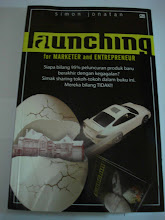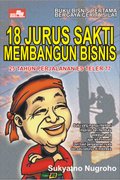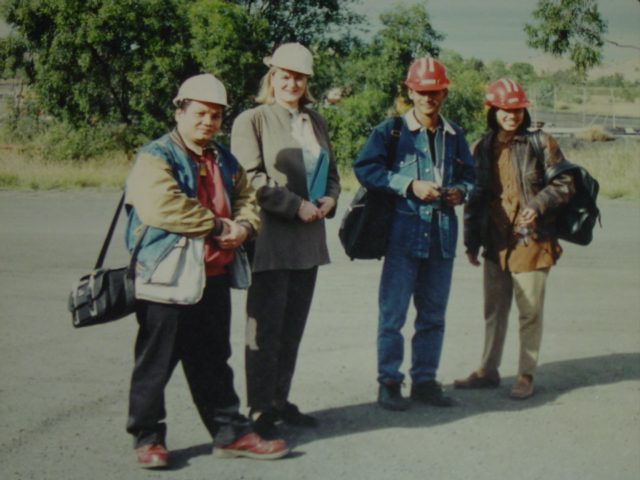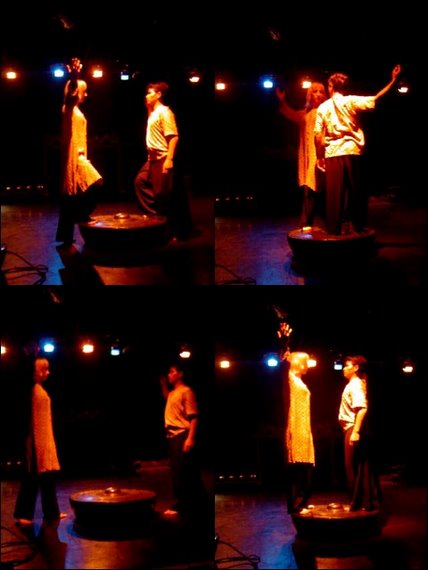
By Ari Satriyo Wibowo
As a person who become the victim of "the butterfly effect" like Al Gore, I am very proud of him. Until now, he have enjoyed his job as senior adviser at Google, board directors member of Apple Inc and "Global Warming Lectures" as you have seen on "An Incovenienth Truth" movie. I still have a dream that he would lead USA more better than Barack Obama or Hillary Clinton. Although he said,"I have fallen out of love with politics."
Time magazine wrote about him on May 25, 2007 edition under the title " The Last Temptation of Al Gore". Here is the excerpt of the article :
Let's say you were dreaming up the perfect stealth candidate for 2008, a Democrat who could step into the presidential race when the party confronts its inevitable doubts about the front-runners. You would want a candidate with the grassroots appeal of Barack Obama—someone with a message that transcends politics, someone who spoke out loud and clear and early against the war in Iraq. But you would also want a candidate with the operational toughness of Hillary Clinton—someone with experience and credibility on the world stage.
In other words, you would want someone like Al Gore—the improbably charismatic, Academy Award–winning, Nobel Prize–nominated environmental prophet with an army of followers and huge reserves of political and cultural capital at his command. There's only one problem. The former Vice President just doesn't seem interested. He says he has "fallen out of love with politics," which is shorthand for both his general disgust with the process and the pain he still feels over the hard blow of the 2000 election, when he became only the fourth man in U.S. history to win the popular vote but lose a presidential election. In the face of wrenching disappointment, he showed enormous discipline—waking up every day knowing he came so close, believing the Supreme Court was dead wrong to shut down the Florida recount but never talking about it publicly because he didn't want Americans to lose faith in their system. That changes a man forever.
It changed Gore for the better. He dedicated himself to a larger cause, doing everything in his power to sound the alarm about the climate crisis, and that decision helped transform the way Americans think about global warming and carried Gore to a new state of grace. So now the question becomes, How will he choose to spend all the capital he has accumulated? No wonder friends, party elders, moneymen and green leaders are still trying to talk him into running. "We have dug ourselves into a 20-ft. hole, and we need somebody who knows how to build a ladder. Al's the guy," says Steve Jobs of Apple. "Like many others, I have tried my best to convince him. So far, no luck."
"It happens all the time," says Tipper Gore. "Everybody wants to take him for a walk in the woods. He won't go. He's not doing it!" But even Tipper—so happy and relieved to see her husband freed up after 30 years in politics—knows better than to say never: "If the feeling came over him and he had to do it, of course I'd be with him." Perhaps that feeling never comes over him. Maybe Obama or Clinton or John Edwards achieves bulletproof inevitability and Gore never sees his opening. But if it does come, if at some point in the next five months or so the leader stumbles and the party has one of its periodic crises of faith, then he will have to decide once and for all whether to take a final shot at reaching his life's dream. It's the Last Temptation of Gore, and it's one reason he has been so careful not to rule out a presidential bid. Is it far-fetched to think that his grassroots climate campaign could yet turn into a presidential one? As the recovering politician himself says, "You always have to worry about a relapse."
For now, at least, Gore is firmly in the program. He's working mightily to build a popular movement to confront what he calls "the most serious crisis we've ever faced." He has logged countless miles in the past four years, crisscrossing the planet to present his remarkably powerful slide show and the Oscar-winning documentary that's based on it, An Inconvenient Truth, to groups of every size and description. He flies commercial most of the time to use less CO2 and buys offsets to maintain a carbon-neutral life. In tandem with Hurricane Katrina and a rising chorus of warning from climate scientists, Gore's film helped trigger one of the most dramatic opinion shifts in history as Americans suddenly realized they must change the way they live. In a recent New York Times/CBS News poll, an overwhelming majority of those surveyed—90% of Democrats, 80% of independents, 60% of Republicans—said they favor "immediate action" to confront the crisis.















